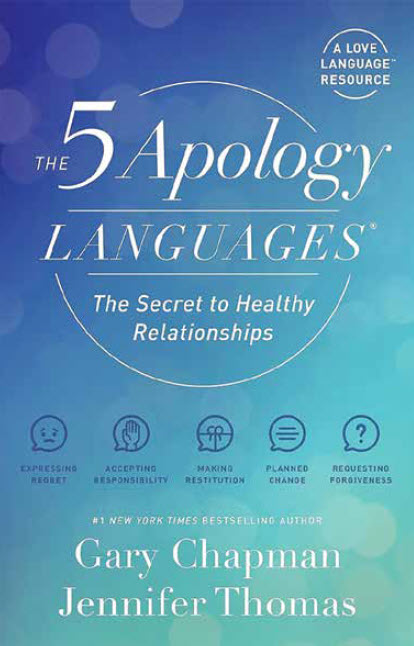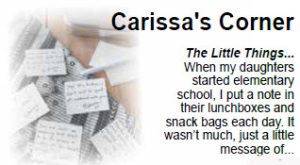 By: Donna Clark
By: Donna Clark
Real marriage involves real people who make real mistakes. The thought of a love that never offends or disappoints is a distorted belief. The earlier in our marriage we can accept the fact that our spouse will make mistakes, the better our relationship will be. Sadly, some enter into a marriage agreement thinking that the one they will spend the rest of their life with is as close to perfect as they come. He or she is so kind and giving, they’d never do anything that would cause any hurt or harm. And then the moment comes, the words are spoken, the deed is done, and suddenly the bubble of the perfect person just burst. If not prepared for that disappointment, it can be devastating to the relationship. So what happens next? The hurt is real, so where do we go from here? The guilty one must accept the responsibility of a mistake and move forward to make it right. Pride has no place in a marriage; in fact, it will be the fall of it.
My husband and I used to tease each other when one of us offended the other. The one who was wronged would attempt to “teach” the guilty one how to say “I’m sorry,” moving our mouth in slow motion and dragging out every syllable with perfect pronunciation. It appeared as if the whole apology thing was as painful as passing a kidney stone. We humans can be so stubborn. Accepting responsibility can be a hurdle at times, but the sooner we recognize this is required, no way around it, the quicker reconciliation can come.
There is an art to apologies. Sometimes just saying “I’m sorry” doesn’t always take away the offense. The one who is hurt is needing something much deeper, and knowing how to deliver an apology that is heard as sincere and heartfelt is crucial. Without an effective apology, the pain remains and it can continue to grow and ultimately destroy the love and trust between two people.
What happens if the apology is not delivered in the way my spouse will know that I’m sorry? More than likely the offense will not be erased; it will be tucked away in the heart and mind, where unfortunately it will rear its ugly head again at the opportune time. So how do I apologize effectively? I’m going to admit my wrong, but how do I convey it in a way that will heal the hurt? Gary Chapman authored a great book on this subject, The Five Apology Languages. Needing an apology that is spoken in our language doesn’t mean that we’re impossible, difficult people wanting to antagonize the guilty party, it’s just a need to hear the words that are meaningful to us.
Want your marriage to be the best? Do the homework. Find your language. It’s actually interesting and fun. Per Dr. Chapman, there are 5 major apology languages. I’m going to give a quick synopsis of each, but I highly recommend the book so you can read further.
1. Expressing regret. This is where the words “I’m sorry” may suffice, but those words need to stand alone. They don’t need to be followed with “But…..” as if you’re trying to make an excuse for the behavior or blame another person. And worse would be to say those words, yet make your spouse feel as if he/she is extreme for even needing an apology.
2. Accepting responsibility. Society has taught us admitting a wrong is a sign of weakness. How far from the truth. There is strength in admitting guilt! Ownership must be taken and the words “I was wrong” need to be said.
3. Making restitution. The wrong has been done, now it’s time to make it right. In other words, it’s as if you’re paying a debt to the person you wronged. Do something to make amends.
4. Genuinely repenting. The word repentance means to turn around. Don’t apologize for an offense to go back and do it again. And again. Any apology with that type of behavior is going to feel like empty words. There needs to be a true repentance, trying very hard to not make that same mistake again. Do what you must to help yourself not continue the cycle.
5. Requesting forgiveness. Some people need to be asked, “Will you forgive me?” Those words can be humbling for the person asking. Yet it’s important for the offended individual to hear those words to feel the apology is sincere and heartfelt.
Why am I trying so hard through this article to get you to a place to learn to apologize effectively? Because unforgiven wrongs breed bitterness and it will destroy a relationship. That hurt that’s been swept under the rug will definitely hinder your marriage. Unfortunately, it won’t just disappear on its own. We, as a married couple, have to keep a clean slate. We say and do the wrong things at times, but we have to apologize and in a way that our spouse will hear our hearts and quickly forgive. Once that apology is offered and forgiveness given, then the offense needs to be buried and not resurrected again.
The 5 Apology Languages is a game changer; I can’t recommend this book enough. I truly believe it can make a huge difference in your marriage. Give it a try! And even if you think you don’t need it, take The Apology Language quiz just for the fun of it (5lovelanguages.com). I think you’ll be surprised at the results.
Next week … 5 ways to say “I love you.”
Making a better marriage –
By: Donna Clark






